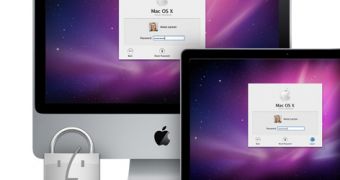Although it is generally believed that Macs are somewhat immune to malware, it has been proven that they are not. And Apple admits this, suggesting that it may be a good idea to employ antivirus software. However, Macs are, indeed, more secure than PCs. Whether it’s because of the software’s underlying architecture, the hackers’ lack of interest in the platform, or a combination of both, downloading something from an unknown source is less likely to harm your Mac, rather than your Windows PC.
To emphasize this, Apple explains that “With virtually no effort on your part, Mac OS X offers a multilayered system of defenses against viruses and other malicious applications, or malware. For example, it prevents hackers from harming your programs through a technique called “sandboxing” - restricting what actions programs can perform on your Mac, what files they can access, and what other programs they can launch,” the company says. “Other automatic security features include Library Randomization, which prevents malicious commands from finding their targets, and Execute Disable, which protects the memory in your Mac from attacks.”
To put it more bluntly, the company states: “Mac OS X doesn’t get PC viruses. And its built-in defenses help keep you safe from other malware without the hassle of constant alerts and sweeps.” The Mac maker offers up a PDF document to brief customers on Mac OS X 10.6 and its enhanced security, but does add its own security advisory, which goes like this:
Security Advice
The Mac is designed with built-in technologies that provide protection against malicious software and security threats right out of the box. However, since no system can be 100 percent immune from every threat, antivirus software may offer additional protection.
Finally, Apple has a few more tips for customers: download files only from known and trusted websites; use FileVault to encrypt your most important documents; control access to your Mac by locking your screen after a period of inactivity; securely delete outdated sensitive files with the Secure Empty Trash command.
Readers can learn everything they need to know about the security of Mac OS X 10.6 Snow Leopard on Apple’s macosx/security/ web page (direct link here). Note: It is known for a while now that Apple has acknowledged these facts: Macs are more secure than PCs, but additional effort may be required on the user's behalf to keep Mac OS& X safe from malicious code. This article has a purely informational purpose and doesn't suggest that Apple has now admitted to certain Mac OS X vulnerabilities.

 14 DAY TRIAL //
14 DAY TRIAL //